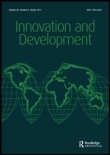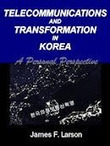See on Scoop.it – Knowledge Economy
(2012). Introduction to the special issue. Innovation and Development: Vol. 2, Sustainability-oriented innovation systems in China and India, pp. 1-4.
Global economic growth, recently fuelled by Asia’s emerging economies, has greatly accelerated the accumulation of greenhouse gases in the atmosphere and boosted demand for scarce natural resources, including energy, food and mineral raw materials. These developments are pushing the planet close to its ecological boundaries. Transforming the world economy towards sustainability, while ensuring decent levels of resource use for all global citizens, is the greatest challenge of our time. This year, the Rio + 20 United Nations Conference on Sustainable Development marks a renewed effort to embark on ways of ‘greening’ the global economy in the context of sustainable development and poverty eradication. Greening the economy entails a techno-economic paradigm shift that needs to be:• radical, as unsustainable technological trajectories need to be disrupted and replaced by new generations of technologies in order to decouple economic development from resource consumption and carbon emissions;
• rapid, because this decoupling has to take place within the next decade or two – a failure to take immediate action will overstrain the carrying capacity of critical global ecosystems and lead to much higher costs in the future; and
• systemic, as it implies changing technological regimes and combining industrial and institutional sub-systems in innovative ways.
Read More at: http://www.tandfonline.com/doi/full/10.1080/2157930X.2012.667910
See on www.tandfonline.com









